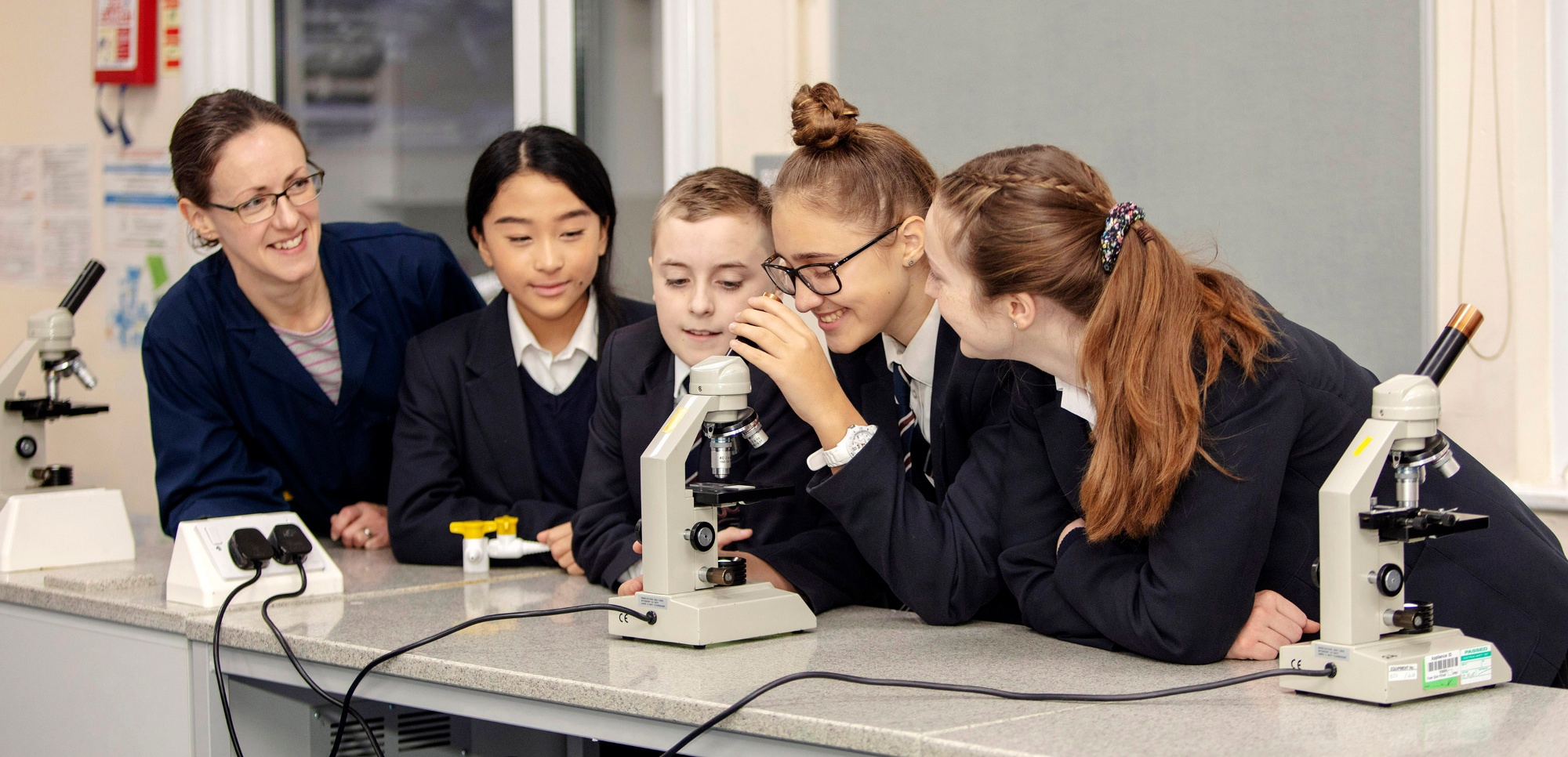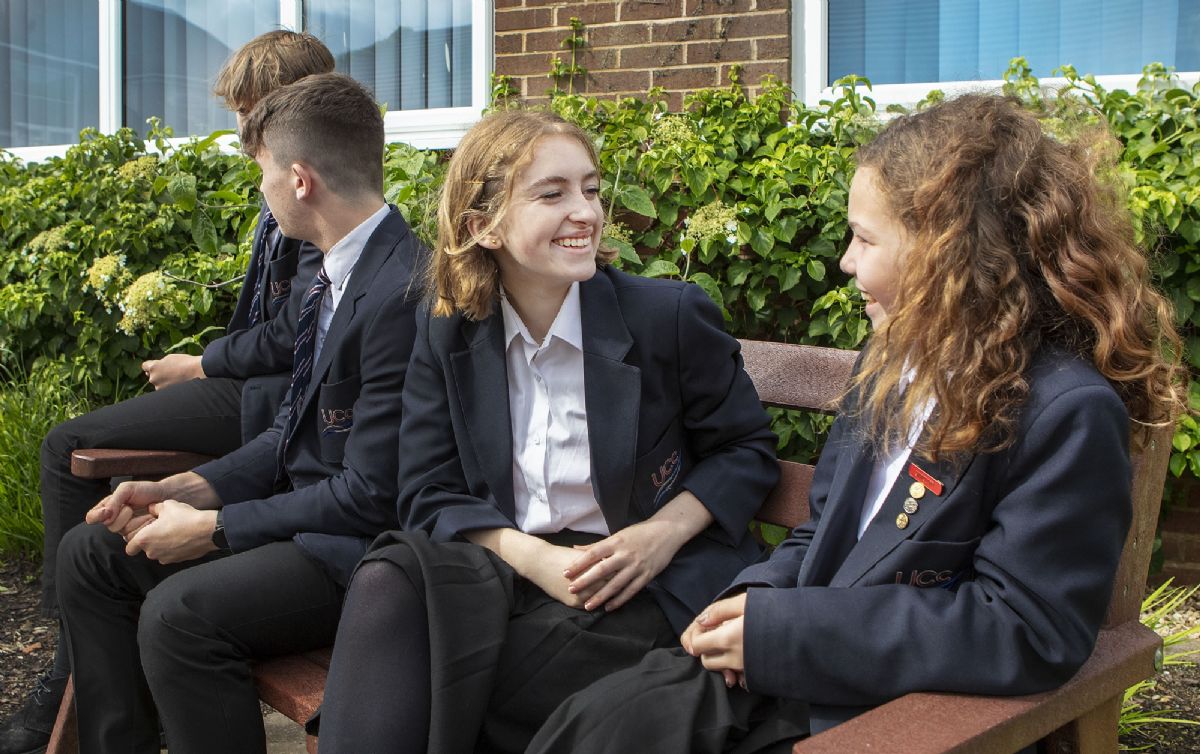SEND
 The Special Educational Needs Coordinator (SENCo) is Mrs Oliver and the Associate Assistant Principal Mrs Wiggin has overall responsibility for Inclusion. They can be contacted on senco@ucc.rutland.sch.uk
The Special Educational Needs Coordinator (SENCo) is Mrs Oliver and the Associate Assistant Principal Mrs Wiggin has overall responsibility for Inclusion. They can be contacted on senco@ucc.rutland.sch.uk
As well as listing how Uppingham Community College can help below, you can also click the link below to view the Local Offers provided by Rutland County Council:
https://www.rutland.gov.uk/rutland-information-service/send-local-offer
My child has difficulties with cognition and learning
This can include:
-
Reading and spelling
-
Learning new information and concepts
-
Working with numbers
-
Working memory
-
Concentration
-
Organisation
-
Balance and coordination
Students may have conditions such as Attention Deficit Hyperactivity Disorder (ADHD), Moderate Learning Difficulties (MLD) or Specific Learning Difficulties (e.g. dyslexia, dyscalculia, dyspraxia). Students may present with difficulties that do not have a specific title.
What can Uppingham Community College offer?
All students at UCC can access:
-
Quality First Teaching with appropriate differentiation (including best SEN practice).
-
Visual aids to support key vocabulary, concepts and themes. (Knowledge organisers, Vocabulary lists, Mind Maps)
-
Adapted PE equipment to enhance PE lessons. (Fitness Equipment, small group PE activities).
-
Assessment for identification of significant needs.
Targeted support for small groups may include:
-
Blocks of 1:1 or small group interventions that focus on a range of needs such as numeracy, literacy, comprehension and spelling.
-
Blocks of 1:1 or small group interventions that focus on improving working memory.
-
Blocks of 1:1 or small group interventions that focus on balance and coordination (fine and gross motor skills).
-
Blocks of 1:1 or small group intervention to enhance accessibility to PE.
-
Personalised timetables / curriculum to suit the individual needs of the pupils.
-
Departmental Teaching Assistant in some lessons to help your child access the curriculum.
-
Where needed, advice from an external agency (e.g. Educational Psychologist).
Support for individual students may include
-
Learner profile created to inform and advise staff on most appropriate strategies to use.
-
On-going tailor-made tuition led by a subject specialist teacher or subject specialist teaching assistant.
-
Personal Development Coach to support optimal social and emotional development.
-
Use of laptops and tablet computers with voice recognition.
-
A handwriting screener and / or handwriting intervention for individuals or small groups.
-
Termly assessment of students with literacy difficulties to review and plan.
-
Subject-specialist teaching assistants in each department to provide on-going support.
-
External agency advice where needed.
-
Exam Access Arrangements.
Please note: these options need to be agreed upon for each student in conjunction with parents/carers and then regularly reviewed/modified.
My child has difficulties with Communication and Interaction
This covers pupils who have difficulty communicating with others. This can include:
-
Understanding language.
-
Using language.
-
Understanding how to communicate socially with other people.
-
Stammering – advice given to families about how to access support from outside agencies.
-
Conditions include: Specific Language Disorder, Autism, speech sound disorders/delay.
What can Uppingham Community College offer?
All students at UCC can access:
-
Quality First Teaching with appropriate differentiation (including best SEN practice).
-
Visual aids to support key vocabulary, concepts and themes.
-
The use of alternative forms of recording (typing or voice recorder).
-
Assessment for identification of significant needs.
Targeted support for small groups may include:
-
Assessment and identification of language needs and feedback to parents and staff.
-
Where needed, help and advice from external agencies (e.g., specialist speech and language teachers, CAHMS etc).
-
Teaching Assistant in some lessons and within each department.
-
ELSA small group programme. Our Emotional Literacy Support Assistant helps children to settle into school, manage their feelings and relate positively to others so that they can make the most of themselves and of all that the school offers.
Support for individual students may include:
-
Pupil profile created to inform and advise staff on most appropriate strategies to use.
-
1:1 session with a Speech and Language Therapist from the Local Inclusion Support Team or NHS.
-
1:1 targeted Learning support assistant in lessons.
-
1:1 mentoring from the Personal Development Coaches as the need arises.
-
Regular 1:1 mentoring to address child mental health, addressing bereavement and other issues.
-
On-going tailor made small group tuition led by a specialist teacher or specialist teaching assistant.
-
On-going monitoring and regular feedback to parents and students (at least termly and including the Annual Review).
-
Exam access arrangements.
Please note: These options need to be agreed upon for each student in conjunction with parents/carers and then regularly reviewed/modified.
My child has sensory and/or physical needs
This page covers students who have difficulties with:
-
Vision
-
Hearing
-
Gross motor skills
-
Fine motor skills
-
Self-organisation for daily living
-
It includes conditions such as cerebral palsy, physical injury, dyspraxia, diabetes, and hypermobility.
What does Uppingham Community College have to offer?
All students at UCC can access:
-
Quality First Teaching with appropriate differentiation (including best SEN practice).
-
Visual aids to support key vocabulary, concepts and themes.
-
Adapted PE equipment to enhance PE lessons.
-
School adheres to guidelines on physical access and the Accessibility Plan is regularly reviewed.
-
Access to the Wellbeing Hub where appropriately trained staff are available.
-
Assessment for identification of significant needs.
Targeted support for small groups may include:
-
Medical Care Plans.
-
Handwriting /fine motor/keyboard skills training.
-
Blocks of 1:1 or small group interventions that focus on improving balance and coordination
-
Group discussions and information giving from school nurse.
-
Access to assistive technology, software, audio digital books and IPad applications.
-
Blocks of 1:1 or small group intervention to enhance accessibility to PE.
-
Personalised timetables / curriculum to suit the individual needs of the pupils.
-
Access to learning support assistant.
Support for individual students may include:
-
Pupil profile created to inform and advise staff on most appropriate strategies to use.
-
Personalised support plans.
-
1:1 Outside Agency support from Specialist Advisory Teachers.
-
Specialist equipment and materials, such as low vision aids and enlarged adapted resources.
-
Supervision for daily sensory exercises.
-
Individual programs of exercise recommended by OT.
-
Targeted Teaching Assistant for complex medical needs, including practical support.
-
Exam Access Arrangements.
Please note: these options need to be agreed upon for each student in conjunction with parents/carers and then regularly reviewed/modified
My child has difficulties with social, emotional health or mental health
This section includes all those young people who experience short but significant periods of high anxiety, stress, distress or anger that affect their education.
It also includes young people who have a range of longer-term recognised mental health conditions.
For both groups, issues can include:
-
Forming and maintaining relationships
-
Bereavement
-
Attitudes to attainment
-
Attendance
-
Self-esteem
-
Self-harm
-
Substance misuse
-
Eating disorders
-
Life outside school
What can Uppingham Community College offer?
All students at UCC can access:
-
Quality First Teaching with appropriate differentiation (including best SEN practice).
-
A classroom at lunchtime for pupils who want a quieter environment to spend social time
-
Lunchtime homework club where staff will help your child to organise or complete their homework.
-
15 staff at UCC are Mental Health First Aiders
-
Assessment for identification of significant needs.
-
Whole school Reward System.
-
Whole school policy for behaviour management with graduated response.
-
Whole school approach to ‘Behaviour for Learning’.
-
Transition support (from primary school and then onto 6th Form College).
-
Anti-bullying policy.
-
Personal Development enrichment curriculum.
-
A designated peaceful, quiet area where pupils can talk to a member of staff within the Inclusion Hub.
-
Access to the Wellbeing Hub and the Personal Development Coaches
-
Each year group has a Progress Leader who oversees and supports the pastoral needs of the year group.
-
Each class has a Form Tutor who is the daily point of contact for students and parents.
Targeted support for small groups may include:
-
Assessment and identification of needs and feedback to parents and staff.
-
ELSA small group programme. Our Emotional Literacy Support Assistant helps children to settle into school, manage their feelings and relate positively to others so that they can make the most of themselves and of all that the school offers.
-
Friendship Club and/or Games Club where staff encourage social skills development, building of relationships between peers and having fun.
-
1:1 mentoring sessions as required.
-
Intervention groups (all years) behaviour/social skills/self-esteem/stress management.
-
In-class support in some lessons.
Support for individual students may include:
-
Pupil profile created to inform and advise staff on most appropriate strategies to use.
-
Regular 1:1 mentoring.
-
Bespoke timetable.
-
Support coming into school at the start of the day with the allocated Key worker
-
Student profile and interventions to support optimal social and emotional development.
-
Bereavement counselling.
-
Outside agency input (e.g. Education Welfare Officer, Educational Psychologist, Early Help, Young Carers, Aiming High, CAMHS).
-
Support from Health and Social Care team/ school nurse.
-
Support from schools Trauma and Attachment Lead Practitioner
Please note: these options need to be agreed upon for each student in conjunction with parents/carers and then regularly reviewed/modified.
What is the role of the SENCo?
The Special Educational Needs Coordinator (SENCo) is Mrs Oliver and the Associate Assistant Principal Mrs Wiggin has overall responsibility for Inclusion. The SENCo’s responsibilities include;
-
Coordinating the provision for pupils with special educational needs.
-
Liaising with and advising colleagues.
-
Overseeing the records of all pupils with special educational needs.
-
Tracking the progress of pupils with SEN.
-
Monitoring the effectiveness of interventions.
-
Liaising with parents of children with special educational needs.
-
Contributing to the in-service training of staff.
-
Managing the school-based assessment and completing the documentation required by outside agencies and the LA.
-
Managing a range of resources, human and material, to enable appropriate provision for children with special educational needs.
-
Liaising with the primary schools SEN Departments to ensure the effective transition and transfer of pupils’ SEN records.
-
Liaising with Post 16 providers and 6th Form Colleges to ensure effective transition of learners.
How do I get in contact with the school regarding a SEND enquiry?
Please email senco@ucc.rutland.sch.uk and your enquiry will be directed to the most appropriate colleague, who will respond as soon as they are able to.
Below, you can find important documents relating to our SEND department including our SEND Policy and information report.



